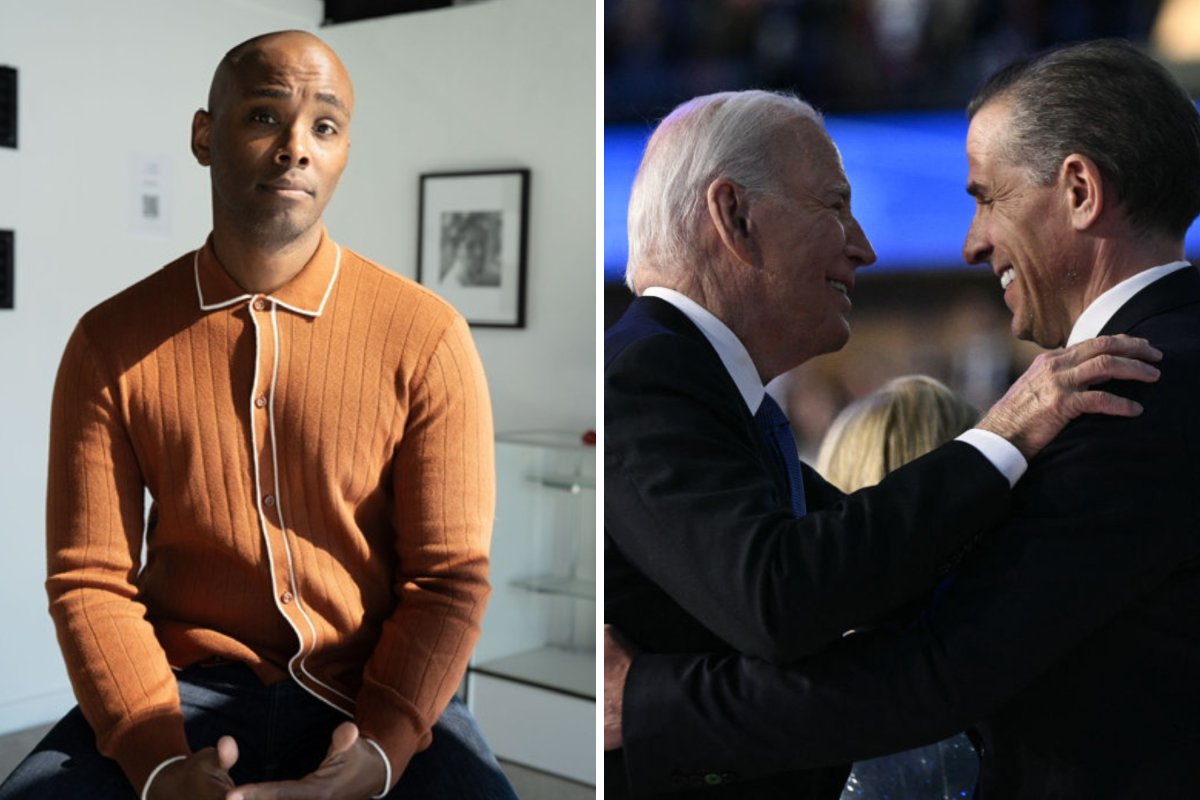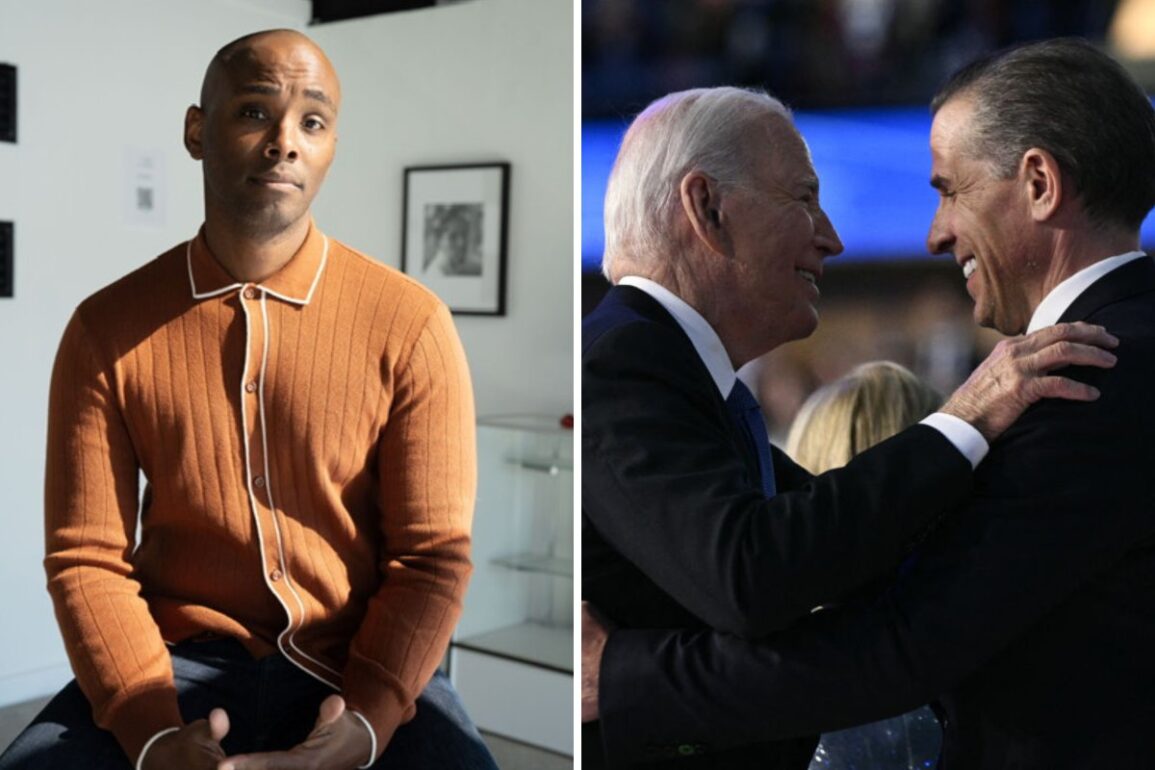This year I was given a chance to participate in a TEDx at Farmington Correction Center—a state prison in Farmington, Mo.—I was excited but a bit nervous by speaking at FCC, because it is in Missouri, my home state.
Before I took the stage to discuss my own scrapes with law and order, jail, and my perspective on mass incarceration, I got a chance to talk with some of the residents at the event. Some of these men—Black like me, from neighborhoods like mine—literally down the block from mine—spoke of lost time, memories of Kansas City, and what they would do when they are released.
As I heard their stories, I realized that if they were born a different color, from a different part of town, with different options—then maybe they wouldn’t be in this place. Maybe if they were given a different name, like Biden—then FCC wouldn’t even be a possibility.
When I learned of President Joe Biden‘s decision to pardon his son, Hunter Biden, of federal gun charges and tax evasion, frowned and shook my head in disgust. President Biden suggested Hunter was targeted by his political opponents stating, “No reasonable person who looks at the facts of Hunter’s cases can reach any other conclusion than Hunter was singled out only because he is my son—and that is wrong.” The President continued, “In trying to break Hunter, they’ve tried to break me—and there’s no reason to believe it will stop here. Enough is enough.”
I understand why Biden did it—as a father, your main responsibility is to protect your family. Hunter has had many troubles in his life, drug addiction and illegal firearms possession among them.
The President understood that once Trump took office, Hunter would be a target, so like any father, he did what he could to shield his son from any attacks Trump may lob at him.
The problem is he tipped the scale toward his son. Virtually 99 percent of America would not have this opportunity. Hunter’s pardon does not say equality and fairness—it screams privilege, whiteness, and being above the law. This is disgusting and further shows there is one United States of America for you and I—and another for folks that look like and possess the status of Joe and Hunter Biden.

A headshot of LeRon Barton (L). US President Joe Biden and his son Hunter Biden hug on stage at the conclusion of the first day of the Democratic National Convention (DNC) at the United Center in Chicago, Illinois, on August 19, 2024. Vice President Kamala Harris will formally accept the party’s nomination for president at the DNC which runs from August 19-22 in Chicago (R).
Cody Keto/BRENDAN SMIALOWSKI/AFP via Getty Images
For many Black people, such as myself—who were born in poverty—the Hunter Biden pardon reeks of the foulest scent of hypocrisy. In the late 1980s and early 1990s, then-Senator Joe Biden was heavily involved in the creation of the 1986 and 1994 Crime Bills.
Seeking to combat the crack-cocaine trade that ran rampant in cities across America, the two bills caused a tidal wave in African-American communities—creating a crack-cocaine sentencing disparity, skyrocketing mass incarceration, and disappearing a generation of people—all because of crack.
None of my friends, neighbors, or family caught up in the war on drugs ever received grace, a diversion, or another shot. They were all punished harshly—lives ruined.
Imagine living in a neighborhood that is a police state—constantly being harassed while walking to school, seeing houses raided, arrested just because, and maybe assaulted and beat—due to the war on drugs. So, it leaves a horrible taste in my mouth when the Crime Bill’s chief author’s son—who has been afflicted with the same addiction that many in my community were—gets a free pass.
Look, I am no fool—the President pardoning his son was inevitable, but can we extend that same compassion to the thousands of men and women currently incarcerated due to drug charges?
According to the Federal Bureau of Prisons—or BOP—as of November 21, 2024, there are roughly 157,000 men and women serving prison sentences, with approximately 10,000 to 30,000 people incarcerated due to cannabis-related offenses.
With marijuana increasingly becoming legal across the United States, the president can begin pardoning those serving time for the drug. Biden can also work with FIX—or Fair and Independent Experts in Clemency—a legislation started by Congresswoman Ayanna Pressley (D-MA), Congressman Hakeem Jeffries, and former Congresswoman Cori Bush (D-Mo)—to review thousands of potential clemency cases. This would be doing something to right the wrongs that laws such as the 1994 enacted.
When I reminisce about my time at Farmington Correction Center, Folsom State Prison in California, or any other facility that I have worked in—I always think about the conversations I had with the men there. We would discuss writing, storytelling, and home. Throughout our talks, the common theme was choices and mistakes they made, and how with a different set of choices, they maybe wouldn’t have made those mistakes.
When you grow up in an environment that has very little resources and ways to obtain legal income, unfortunately, your options become the streets. You do what we call “Penitentiary Chances” in order to survive, because there is no safety net where I am from. We are not born into wealth and opportunity—only survival and day-to-day existence.
Hunter Biden did not grow up like that. He lived a life of privilege and wealth and had chance after chance of mistakes and terrible decisions. Myself and other Black and poor men don’t have a powerful daddy to bail us out.
The margin of error for us is so thin—you can’t even touch it. I believe that President Biden’s legacy is already in tatters due to him leaving his re-election race too late, not creating a substantial policy, and his inability to stop the genocide in Gaza.
Pardoning his son Hunter only adds to a historically bad record. I just wish that one day justice can truly be blind and we can have compassion for the many people incarcerated for crimes and decisions—and give them another chance, like Hunter Biden got.
LeRon L. Barton is an author and public speaker.
All views expressed are the author’s own.
Do you have a unique experience or personal story to share? See our Reader Submissions Guide and then email the My Turn team at myturn@newsweek.com.
This post was originally published on this site be sure to check out more of their content.









